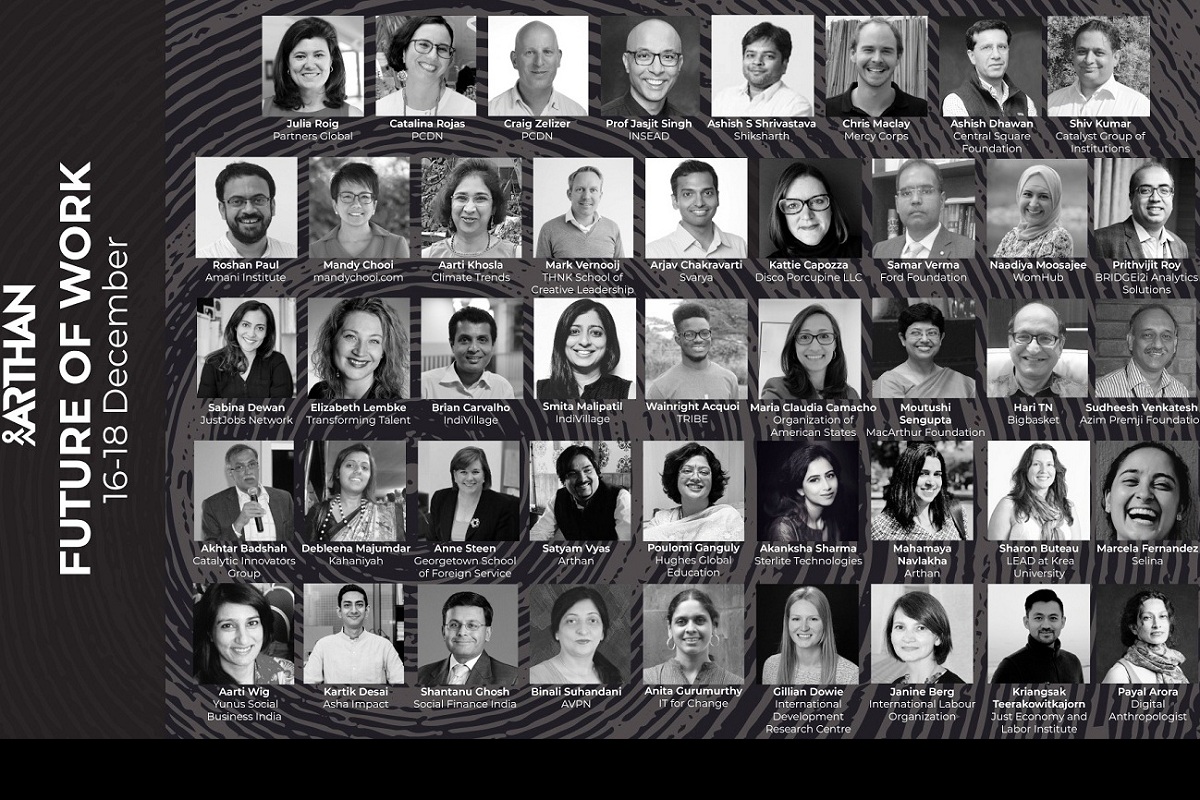Feel the pulse
In the face of a turbulent global economic environment and persistent urban demand fragilities, India’s rural economy has quietly emerged as a resilient pillar of growth.
Due to the pandemic, employment has taken one of the biggest hits globally.
SNS | New Delhi | December 16, 2020 4:30 pm

While the ambiguity is immense and there is no doubt that the future will be challenging, there also is an opportunity, if we are prepared to recognise and act on now. (SNS)
There is no question that the world has been changing rapidly over the past few years. 2020 and the spread of the Covid-19 pandemic have further drastically changed the course of the future. As the world was thrown into turmoil, there have been multiple conversations and predictions about what the ‘new world’ will look like for societies and economies across the world. In all of this, some of the most significant changes will be seen in the world of work, which has already been deeply affected by recent events.
Due to the pandemic, employment has taken one of the biggest hits globally. According to a survey by the Indian Society of Labour Economics (ISLE), job loss is the most severe immediate impact of the Covid-19 crisis with lower economic growth and rise in inequality as long-term effects. India, too, has already seen over 4 million young Indians losing their jobs due to Covid-19 (ILO-ADB).
Advertisement
In all of this, while few sectors have remained unaffected, the social sector has been significantly impacted by the pandemic. From a reduction in philanthropic giving and CSR funding to scaling down of programs and walking the tightrope between creating impact and sustaining themselves, social impact organisations are facing an existential crisis like never before. What does the future hold for this sector that employs close to ~ 7 million people?
Advertisement
While the ambiguity is immense and there is no doubt that the future will be challenging, there also is an opportunity, if we are prepared to recognise and act on now. But for this to happen it is vital to bring together organisations, leaders, job seekers and employers from within and outside the development sector, on a common platform to discuss some of the key questions about how we can act now to reshape the future and plan the necessary course of action and implement the same.
Arthan is organising a forum titled ‘Future of Work’, from December 16th to the 18th, 2020 bringing together over 60 of the world’s leading thinkers, doers, builders from diverse sectors to explore the key trends in the future of work and social impact.
Satyam Vyas, the Founder and CEO of Arthan says, “The future of work is now. Digitalisation because of the Covid-19 crisis has sparked radical shifts in how we live and work. These radical changes raise essential questions about the future of jobs, the skills we need for current and future jobs, as well as the quality and impact of jobs. We will need to learn, not just at school but throughout our lives. The Future of Work forum by Arthan will seek answers to these daunting questions and define the strategy for the post-covid era workforce.”
From masterclasses to fireside chats, panel discussions to lightning talks, the Future of Work forum will present carefully curated sessions on an array of topics that have great significance as we emerge from a covid-ravaged world into hopefully, a post-covid world. The forum will also have a career hub, called CareerConnect where aspiring job seekers will be able to interact with leading organisations hiring for mid and senior-level roles.
Akanksha Sharma who leads Global Social Impact and Sustainability for STL (Vedanta Group) says, “On the Social Capital Ecosystem, I see Impact Investing as an effective conduit for creating scalable solutions by funding enterprises that are result-oriented and support concrete and sustainable development initiatives. Something which traditional CSR models find it difficult to achieve due to various fall-outs. The social sector needs to really gear up for the pay for success model for upscaling outcome-based investments and have a data-driven approach for harnessing more capital and exponential results. This would also help in putting a better structure in place as the implementing organizations and NGOs would have to adapt to more scientific and performance-based parameters for development models. For a country like ours that aspires to secure the welfare of a very large population, both the public and private sector should come forward for collaborative models on impact investing for fuelling the cumulative performance of the social sector agencies.”
Sabina Dewan, President and Executive Director of JustJobs Network adds, “As the pandemic accelerates technological change and the emergence of a new digital ecosystem of work, we must make sure there is equality of opportunity and convergence in labour market outcomes for women and men. This is neither assured nor automatic. Only careful policy choices can make this so. At Arthan’s Future of Work Forum, the JustJobs Network and International Development Research Centre, Canada, will co-host a session on ‘Women, Work and Voice in the Gig Economy’ to understand how to shape this new world of digital work to harness the enormous creative and productive potential of women.”
Advertisement
In the face of a turbulent global economic environment and persistent urban demand fragilities, India’s rural economy has quietly emerged as a resilient pillar of growth.
Fitch highlighted that the revised estimate for India shows a stronger contribution from labour inputs, mainly total employment, rather than labour productivity.
Delhi Chief Minister Rekha Gupta said on Monday that the government was monitoring the Covid situation and the number of cases, while assuring that the city's hospitals have facilities and are well equipped.
Advertisement
